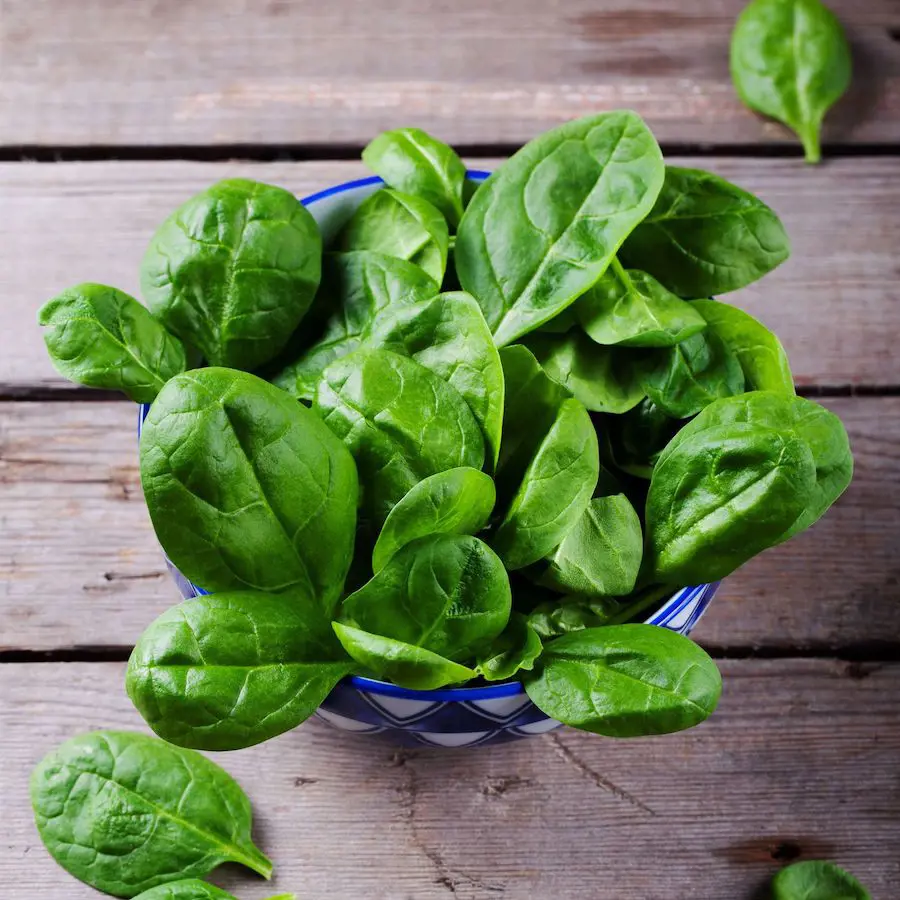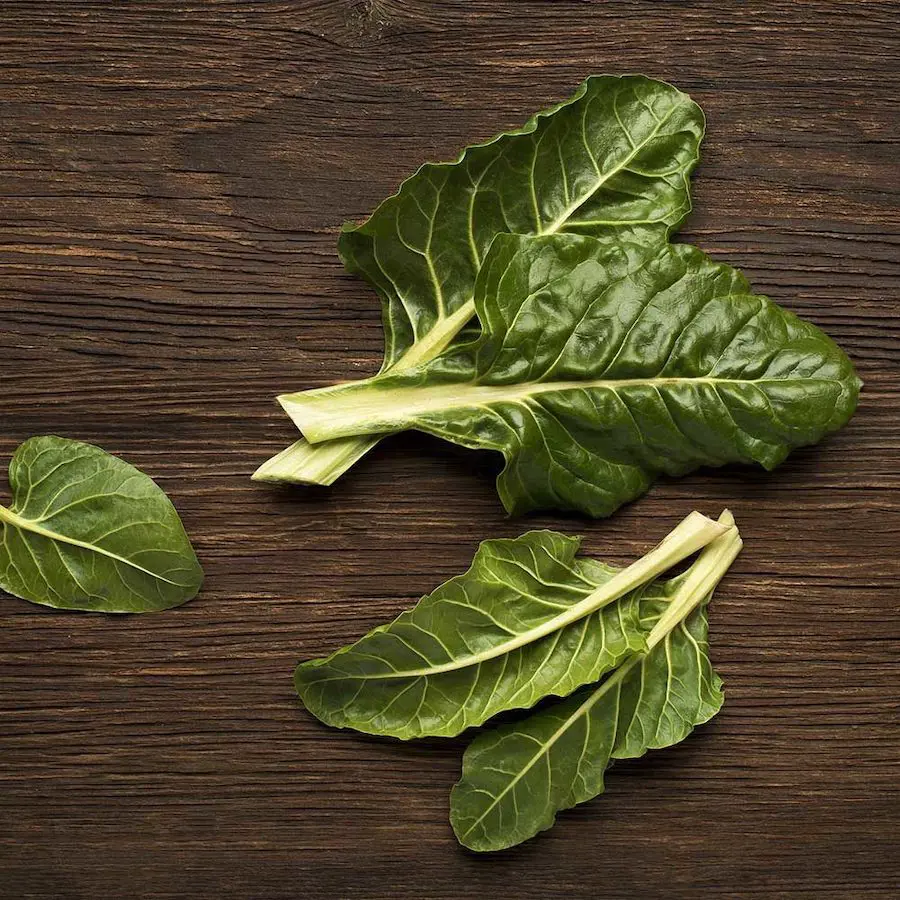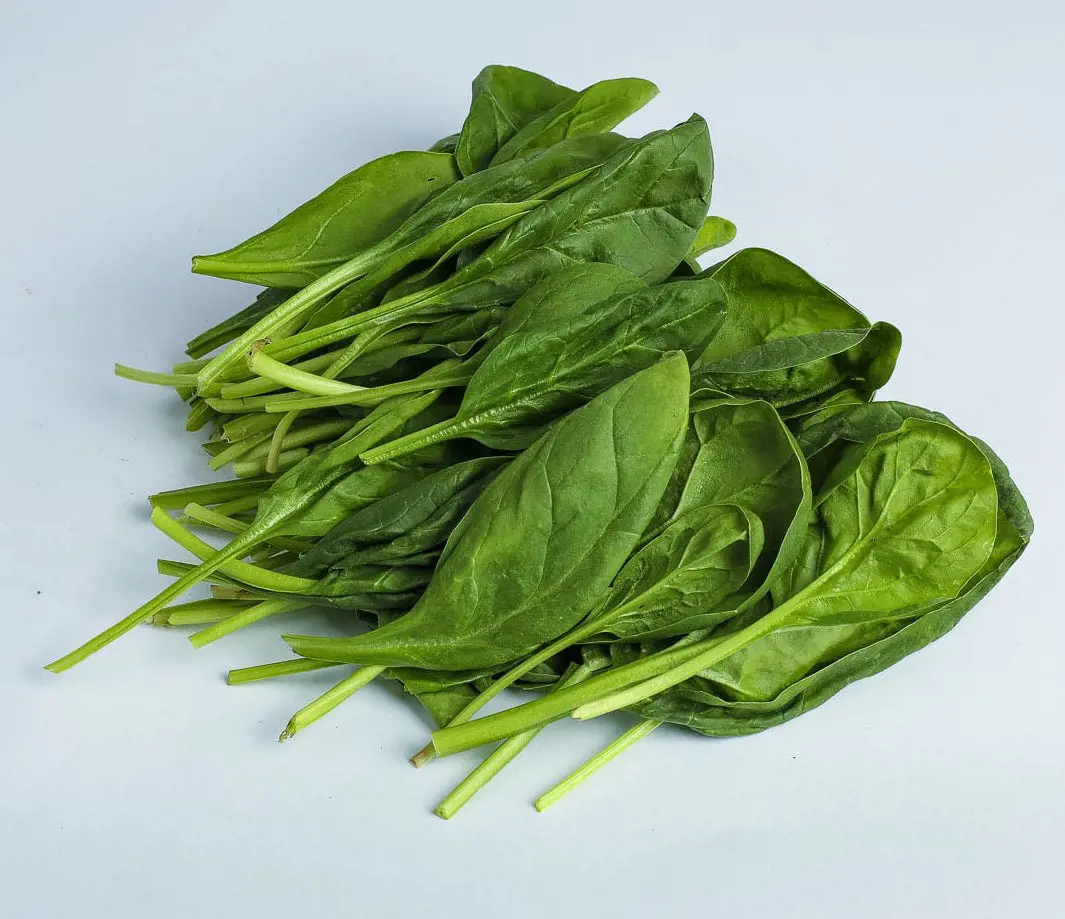Spinach Nutritional Composition

Spinach is low in calories and packed with essential vitamins, minerals, and antioxidants. Here is the nutrition profile of 100 grams (3.5 ounces) of raw spinach as per Healthline:
- Calories: 23
- Protein: 2.9 grams
- Carbohydrates: 3.6 grams
- Fiber: 2.2 grams
- Fat: 0.4 grams
- Vitamin A: 188% of the Daily Value (DV)
- Vitamin C: 47% of the DV
- Vitamin K: 604% of the DV
- Folate: 49% of the DV
- Iron: 15% of the DV
- Calcium: 10% of the DV
- Magnesium: 20% of the DV
- Potassium: 16% of the DV
Spinach is also a good source of vitamin E, vitamin B6, thiamin, riboflavin, niacin, zinc, and phosphorus. It is rich in antioxidants such as lutein, zeaxanthin, and beta-carotene, which help protect the body against oxidative stress and reduce the risk of chronic diseases.
Carbs
While it is low in calories, spinach is also a good source of various nutrients, including carbohydrates. Spinach contains around 3.6 grams of carbohydrates per 100 grams. These carbs primarily come in the form of dietary fiber, which is essential for maintaining a healthy digestive system.
It is also a source of other types of carbohydrates, such as sugars and starches. However, these are present in small amounts and are not considered significant contributors to overall carbohydrate intake.
In terms of glycemic index, spinach has a very low value, meaning it has a minimal impact on blood sugar levels. This makes it suitable for individuals with diabetes or those looking to control their blood sugar levels.
Fiber

Fiber is a type of carbohydrate that the body cannot digest, meaning it passes through the digestive system relatively intact. This helps to promote healthy bowel movements, prevent constipation, and support regularity.
One cup of cooked spinach contains approximately 4 grams of fiber. This indicates that it is a great addition to those looking to increase their fiber content in their diets.
The fiber found in spinach helps regulate blood sugar levels by slowing down the absorption of glucose into the bloodstream, which can be particularly beneficial for individuals with diabetes. Furthermore, fiber-rich foods like spinach can contribute to weight management by promoting feelings of fullness and reducing overall calorie intake.
Vitamins and Minerals
There are many vitamins and minerals that occur naturally in spinach. Among them, vitamin A occurs in the highest concentration. Even though it doesn't occur in the form of Vitamin A, it is present as carotenoids, which are then converted into vitamin A by our body.
Other vitamins found in spinach are vitamin C, vitamin K, vitamin B6, vitamin B9, and folic acid. It also contains minerals like iron, calcium, magnesium, and potassium. The composition of these nutrients is what makes this vegetable a superfood.
Other Plant Compounds

Bioactive compounds are found in several fruits and vegetables that have different functions in the body. Many of these compounds are multi-functional and support multiple organs and systems. Some of plant compounds found in spinach are:
- Lutein
- Quercitin
- Zeaxanthin
- Nitrates
- Kaempferol












